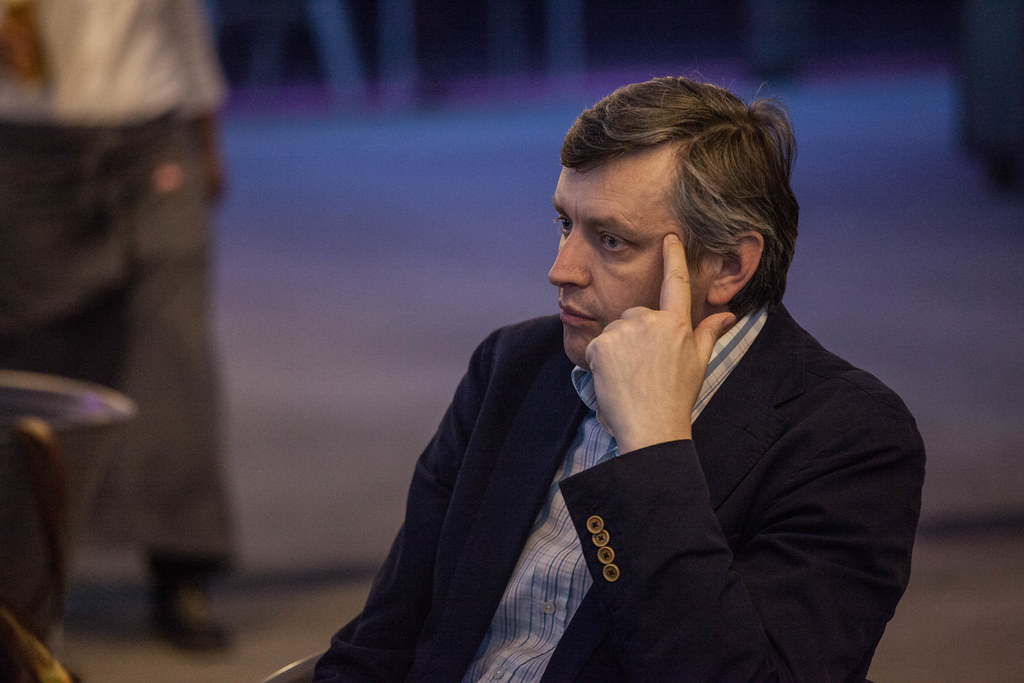Reflecting back on history often helps us orient ourselves in the midst of such crises as the current Russia-Ukraine war. Such was the rationale behind the “Historical Moments and Movements in Ukrainian Art and Film: From Medieval to Contemporary” webinar co-hosted by the Russian and East European Studies departments at Stanford and Yale.
On Friday, world-renowned filmmaker Sergei Loznitsa, director of award-winning documentaries such as “Maidan” and “Donbass,” discussed his experiences depicting ongoing social movements inside Ukraine through film in a moderated conversation with Srdan Keca, an assistant professor of documentary film at Stanford.
Loznitsa, who grew up in Soviet Ukraine, centered his films around topics like the Russian Revolution, Stalinist purges and the Moscow Trials, among others. “Maidan” was an outlier in Loznitsa’s works due to its portrayal of an evolving situation at the intersection of historical lines; as Keca pointed out, the film explores the Euromaidan protests in 2013 that are often viewed as representing the rebirth of democratic culture in Ukraine. Loznitsa’s experience bringing the reality of the Euromaidan in Ukraine to a Western audience has given him a unique perspective on the role of images in the current war.
“This war is happening online, and we are all witnesses of its tragedies,” Loznitsa said. “Photographs of the current crisis ‘attack’ us and leave us speechless in a way that transforms us.”
Loznitsa underscored the power behind social media images’ ability to affect our physical sensations and humanize war victims. I, as a listener, was reminded of the power of the photographs of Ukrainian civilians’ plight in evoking sympathy worldwide and contributing to positive social change. I was also reminded of the disinformation campaigns that the Kremlin has used to justify the invasion of Ukraine.
Loznitsa, during the filming process of “Maidan,” marveled at the energy the protestors displayed and the kindness with which they regarded each other, all originating from their shared pursuit of a utopian dream of liberal democracy. He sensed the significance of the event at the time, bringing his filming team to the Maidan Square to film the assembling citizens with the goal of describing everything to future viewers as objectively as possible.
“I tried to limit the movement of the camera,” Loznitsa said of his efforts to minimize actions that could remind viewers of the presence of a filtering lens. “I wanted the audience to witness the event with their own eyes.”
The film director expressed his intention to shed light on the behaviors of ordinary people during the Euromaidan, omitting politicians. He excluded footage of people’s celebrations of the “victory” — the establishment of a democratic process at the end of the movement — in order to place emphasis on commemorating those being abused by the police or persecuted as dissidents, who numbered in the hundreds.
Loznitsa told the webinar participants that half of the audience at the film’s first screening at the Odessa Film Festival criticized the film for not having a clear message as to who is guilty in the Euromaidan conflicts, pointing to a societal tendency to politicize documentaries. But to Loznitsa, the medium of film should aim not to offer judgements on history but to provide the viewer with the most just descriptions of the events.
To press the audience to be moral participants in the current crisis, the director urged listeners to delve into the works of filmmakers who unearth historical trends that illuminate our understanding of today’s reality. He lauded the work of Kira Muratova, among many others, who have depicted themes of changed humanity following the collapse of the Soviet Union and created films that reveal how the dictatorial tradition started by the Russian Revolution persists today.
